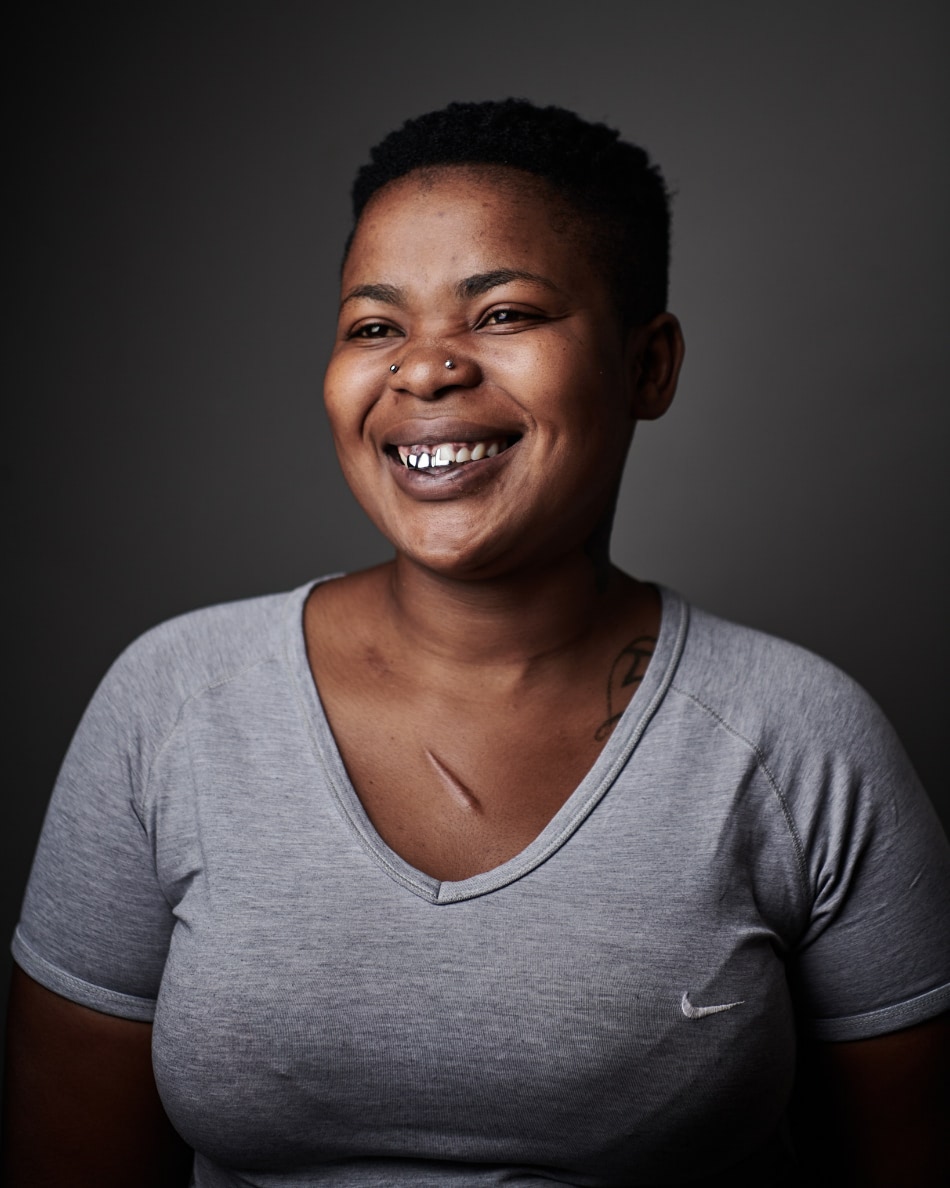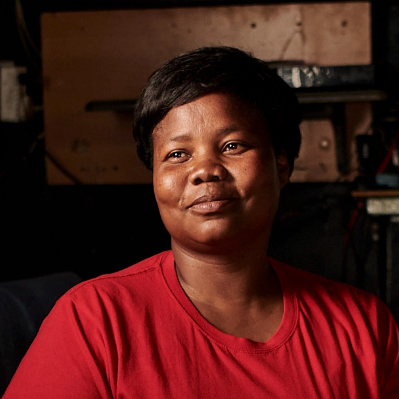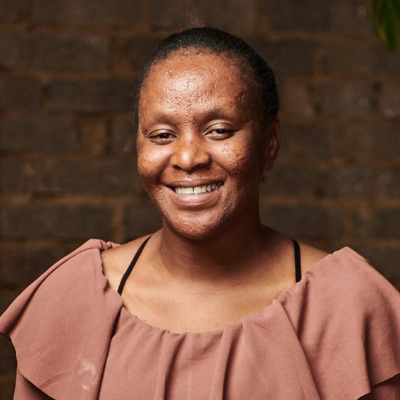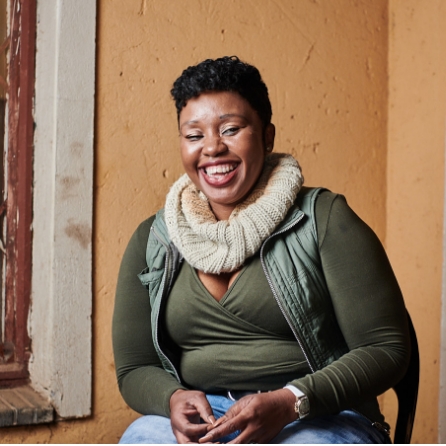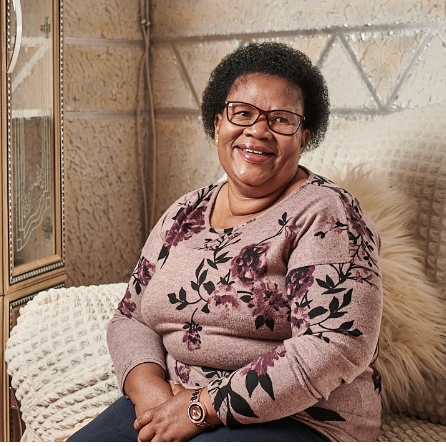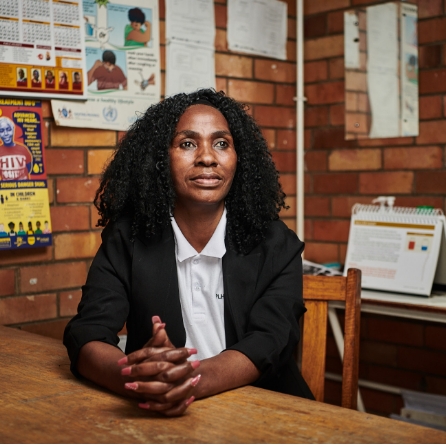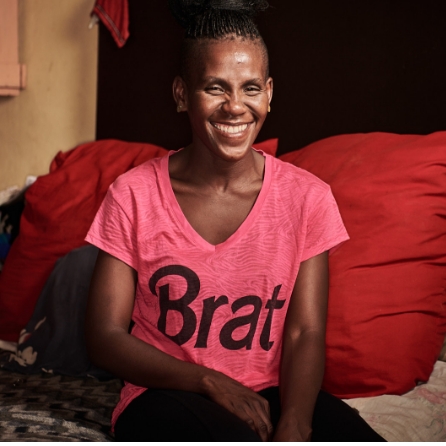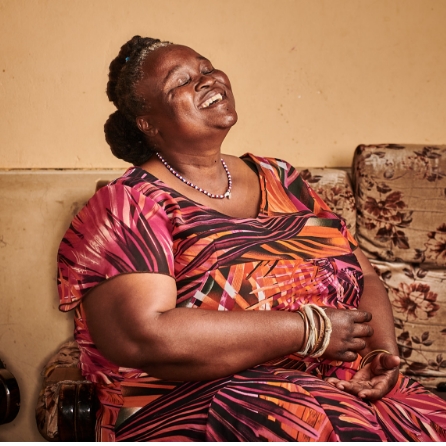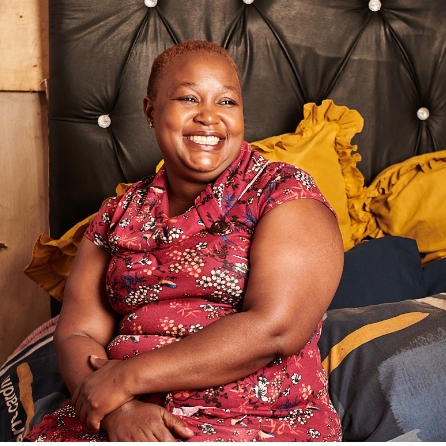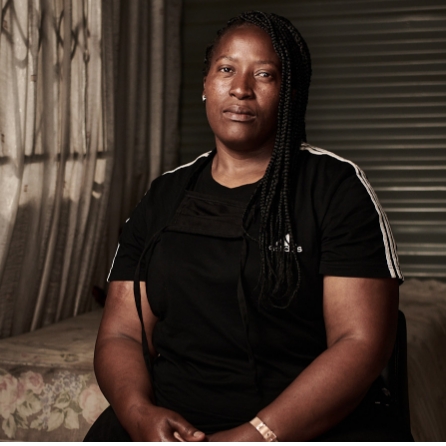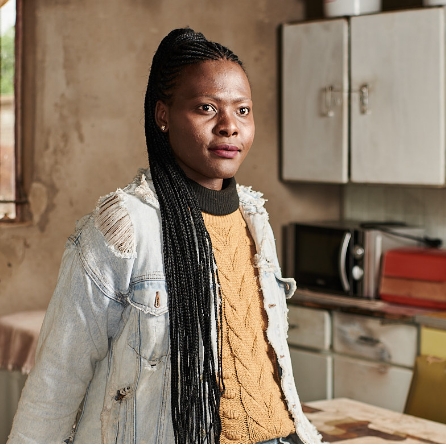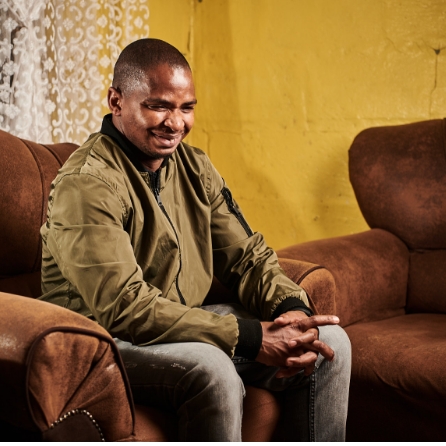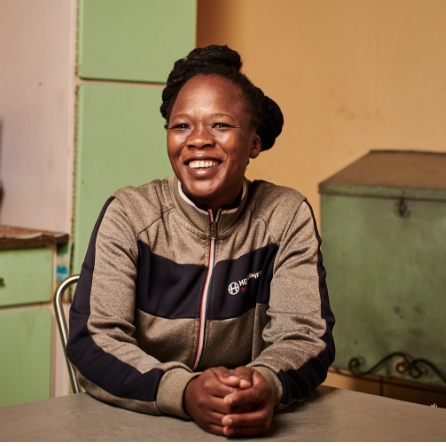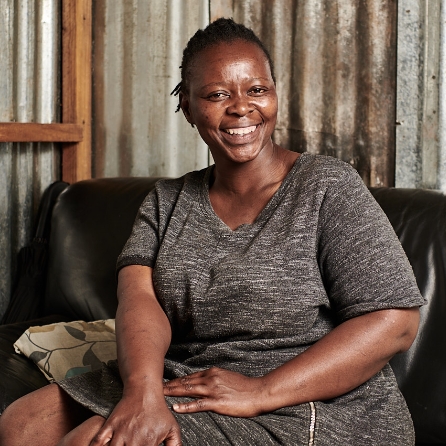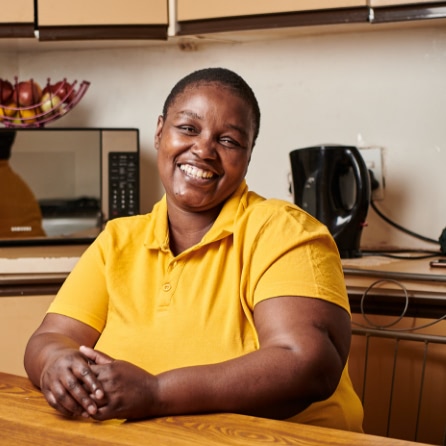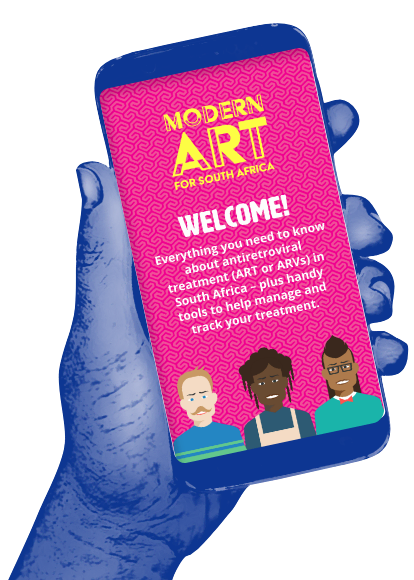Thulina Moukangwe, 27, Kwa-Thama, ekuruleni east
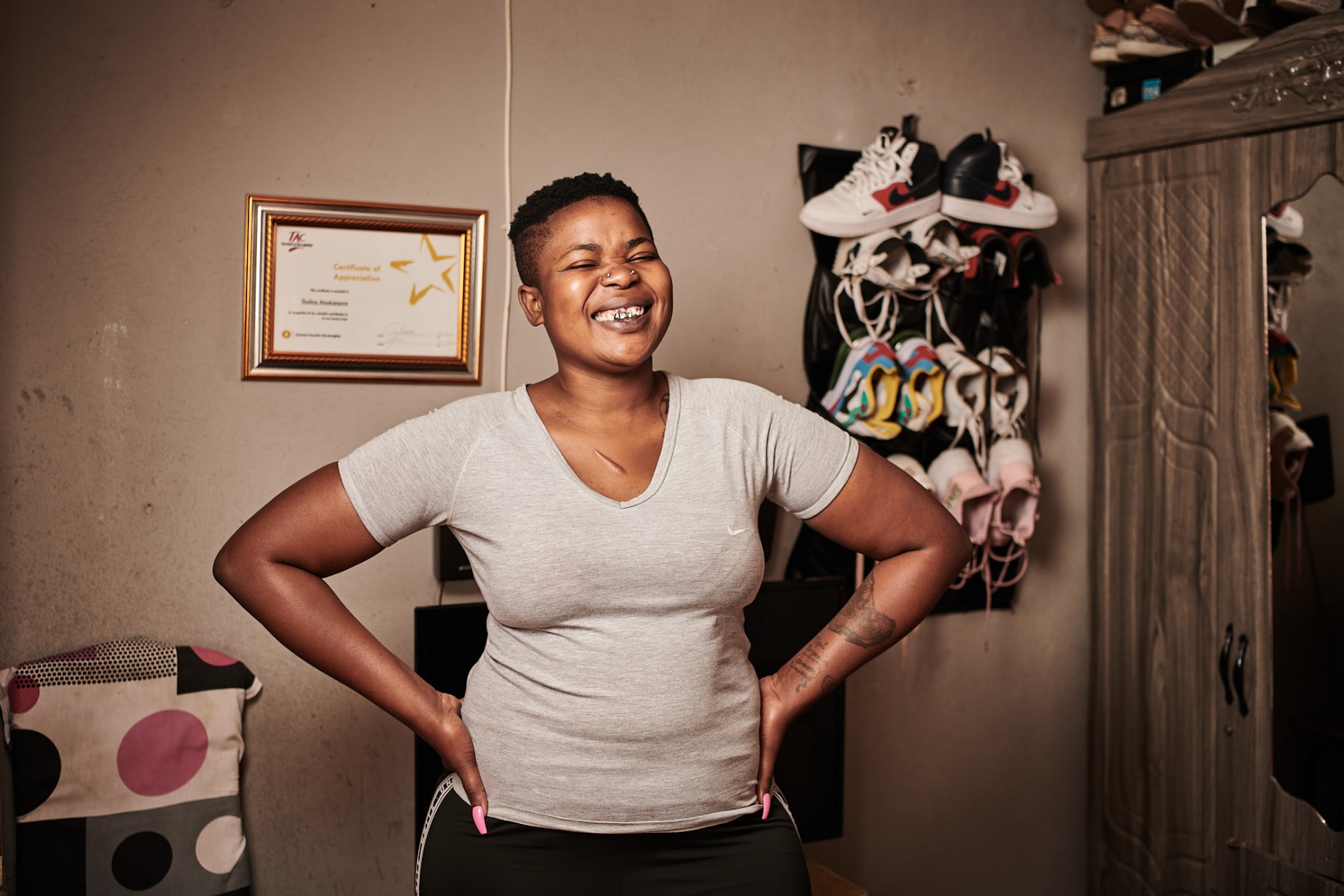 Thulina found out that she was HIV positive when she was 17. She views the support from her friends as vital to managing her life on ARV's. Her concern is that many older people are listening to rumours on the street and do not have a way of getting accurate and up-to-date information and support about HIV. “Since I am on ARVs I am protected and I am healthy and everything is okay.”
Thulina found out that she was HIV positive when she was 17. She views the support from her friends as vital to managing her life on ARV's. Her concern is that many older people are listening to rumours on the street and do not have a way of getting accurate and up-to-date information and support about HIV. “Since I am on ARVs I am protected and I am healthy and everything is okay.” Thulina was diagnosed with HIV when she was 17, that was in 2010. She started ARVs in August 2015 and has been on them for seven years. Since being on ARVs she has been healthy and has not experienced the problems she had before. She is on a FDC (fixed-dose combination pill) which she takes once a day, at night.
She says that if you skip one day of medication it is not too much of a problem but more than one day makes you a defaulter and can cause problems. She says that she has not skipped a day since starting ARVs. If she is going out with her friends, she will take the bottle of pills with her. If she is going to be drinking she will wait until she takes her pill at 9 pm and will then drink alcohol after that.
In terms of support systems, Thulina has got her friends on to ARVs and opened up to them about her status. They understand each other because they are going through the same thing.
Thulina is on the CCMDD (Central Chronic Medicine Dispensing and Distribution) system which means that she can get her medication from the local pharmacy every three months. She goes into the clinic once a year to draw blood. This makes it a lot easier. She gets to avoid judgment from the clinic staff and, at the same time, bypasses the travel logistics of getting to the clinic.
She is worried about elderly people who are not getting the right information. She wants them to go to the clinic to get the right information, instead of listening to the word on the street.
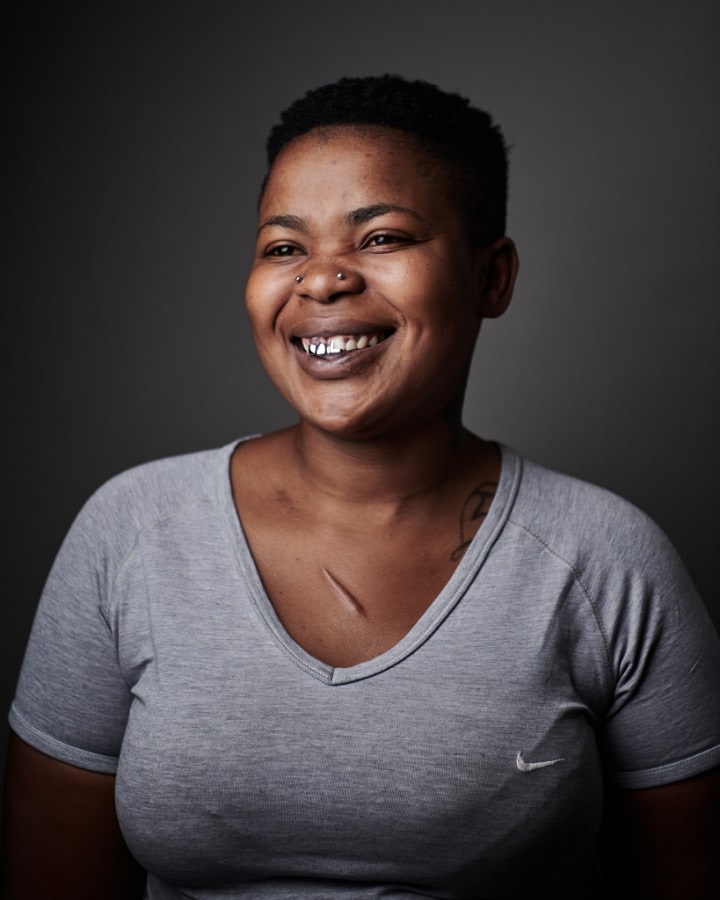 Thulina found out that she was HIV positive when she was 17. She views the support from her friends as vital to managing her life on ARV's. Her concern is that many older people are listening to rumours on the street and do not have a way of getting accurate and up-to-date information and support about HIV. i
Thulina found out that she was HIV positive when she was 17. She views the support from her friends as vital to managing her life on ARV's. Her concern is that many older people are listening to rumours on the street and do not have a way of getting accurate and up-to-date information and support about HIV. i
Thulina Moukangwe, 27, Kwa-Thama, ekuruleni east
Thulina was diagnosed with HIV when she was 17, that was in 2010. She started ARVs in August 2015 and has been on them for seven years. Since being on ARVs she has been healthy and has not experienced the problems she had before. She is on a FDC (fixed-dose combination pill) which she takes once a day, at night.
She says that if you skip one day of medication it is not too much of a problem but more than one day makes you a defaulter and can cause problems. She says that she has not skipped a day since starting ARVs. If she is going out with her friends, she will take the bottle of pills with her. If she is going to be drinking she will wait until she takes her pill at 9 pm and will then drink alcohol after that.
“Since I am on ARVs I am protected and I am healthy and everything is okay.”
In terms of support systems, Thulina has got her friends on to ARVs and opened up to them about her status. They understand each other because they are going through the same thing.
Thulina is on the CCMDD (Central Chronic Medicine Dispensing and Distribution) system which means that she can get her medication from the local pharmacy every three months. She goes into the clinic once a year to draw blood. This makes it a lot easier. She gets to avoid judgment from the clinic staff and, at the same time, bypasses the travel logistics of getting to the clinic.

She is worried about elderly people who are not getting the right information. She wants them to go to the clinic to get the right information, instead of listening to the word on the street.
“I made sure that I study and learn more about HIV and my medication so that I can understand it better. It helps when it comes to fear. It helps when it comes to stigma.”
